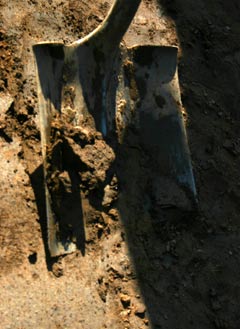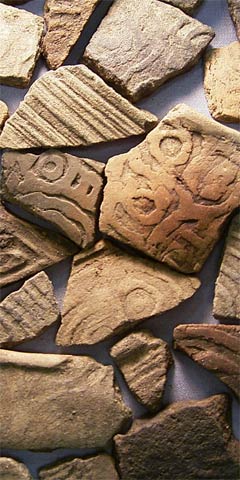- Home page
- What were you doing out there on Highway 61?
- Why did you dig there?
- Where is the site?
- Who lived there?
- What happens after the digging?
- What is archaeology?
- What is it like to work on a field crew?
- What is it like to work in the lab?
- Are there laws that protect archaeological sites?
- Ask a Native American about tribal history, archaeology, and more
- Who can I contact for more information?
- Special pages for students
- Special pages for teachers
- Special pages for archaeologists
Answering your questions
‘What is Archaeology?’
Archaeologists study all things human, through all of time and across the globe. Archaeologists study people, not dinosaurs! Archaeologists in the United States are anthropologists or historians with specialized training in archaeological method and theory. Archaeologists study cultures that lived in the past by finding and interpreting the physical things that people lost or left behind such as refuse and architectural ruins. In Bartow County, as with most of the Southeastern United States, ninety-five percent of the past is known to us only through archaeology.
Archaeologists in Georgia study a diverse collection of places and things to learn about the distant and not so distant past. Archaeological sites that have been studied by archaeologists in Bartow and neighboring counties include Native American mounds and villages like the Leake and Etowah Sites, Allatoona Pass Civil War battlefield, the Little River water powered Rope Mill Site, historic cemeteries, ancient Native American hunting camp sites, the Mark Cooper Iron Furnace and others.
At the Leake Site, we study the artifacts we recover such as broken pottery sherds and stone tools. We also study the animal food bone and microscopic plant remains discarded from Native American meals. Identifying the species helps archaeologists understand more about the diet and health of the people and the environment in which they lived. The faint stains from Indian dwellings and storage pits are precisely mapped and characterized so we can see the site at several scales ranging from individual family households to the entire Leake village. We can compare and contrast the Leake Site with other Middle Woodland sites in the Etowah River Valley and throughout the Eastern United States to rediscover what it was like to live 2,000 years ago in what is now Bartow County.

